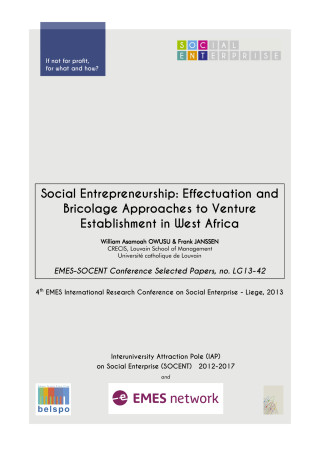How can a social entrepreneur overcome resource constraints in an uncertain environment? According to Sarasvathy and Dew (2005), it is indeed possible to create new markets through a process of exploration (which includes experimentation, flexibility, innovation etc). Despite the strength of the resource based view (RBV), its weaknesses are revealed, particularly due to resource constraints facing new social ventures as a result of the failure of governments and the market. Precisely, the theoretical assumptions about the nature of resources and resource environments offer little assistance for understanding how entrepreneurship may bring value to otherwise worthless resources and assist in growth of the firm, despite resource scarcity. The behavioral theories of “entrepreneurial effectuation and bricolage” (Sarasvathy, 2001, 2008; Baker and Nelson, 2005) have been extended to social entrepreneurship to explore entrepreneurial opportunities, create and develop new organizations (Bird and Schjoedt, 2009). Effectuation and Bricolage, that are valuable concepts to explain how social ventures are established in resource poor environment has received less attention. As a result the objective of our paper is to theoretically explore how social entrepreneurs overcome resource constraints in an uncertain environment through effectuation and bricolage, as well as to examine how these theories can be used in the African environment.



